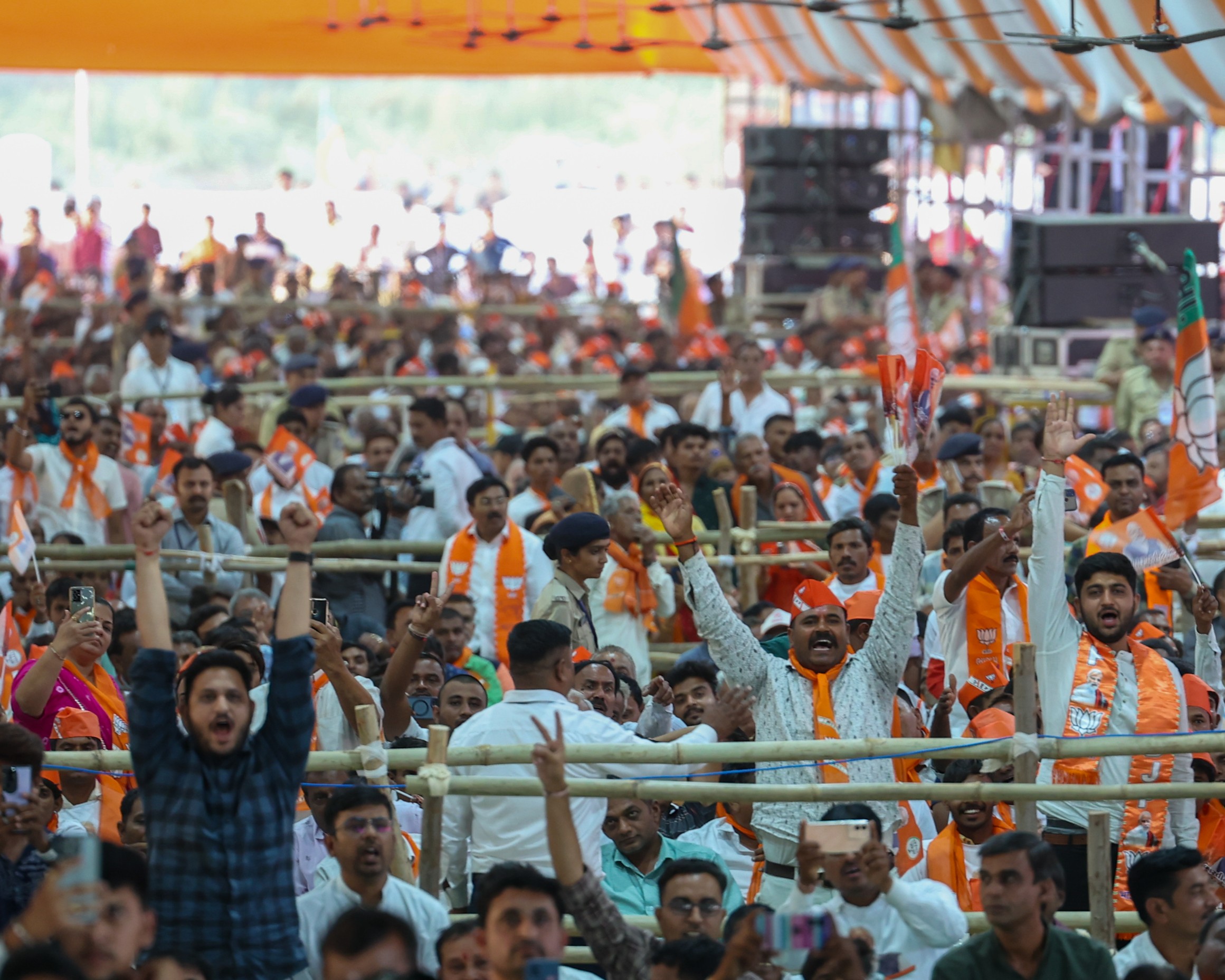
As India gears up for the Lok Sabha Elections in 2024, the political landscape is fraught with tension and intrigue, particularly concerning the Bharatiya Janata Party (BJP) and its relentless pursuit of power. Under the guise of nationalism and Hindu identity, the BJP has employed a range of tactics, from religious polarization to anti-Pakistan rhetoric, to manipulate public opinion and secure electoral victories. However, a closer examination of BJP’s strategies reveals a dangerous erosion of democratic principles and an alarming disregard for minority rights.
At the core of BJP’s agenda lies its Hindu nationalist ideology, which has been instrumental in polarizing voters along religious lines. Despite claims of being the sole representative of Hindu interests, data from reputable sources like the Pew Research Center paint a more nuanced picture. While the BJP may have garnered significant support among Hindus in certain regions, its appeal remains limited in others, indicating a diverse spectrum of political preferences within the Hindu community itself.
Central to the BJP’s rise to power has been its campaign for the construction of a Ram temple at the disputed site in Ayodhya. The destruction of the Babri Masjid in 1992 by Hindu nationalists catalyzed the BJP’s ascent to prominence, as it tapped into Hindu sentiments and rallied support around the promise of a grand temple dedicated to Lord Ram. The recent inauguration of the Ram Mandir just before the elections serves as a stark reminder of BJP’s psychological manipulation tactics aimed at garnering popular Hindu votes.
However, BJP’s tactics extend beyond religious polarization to encompass the weaponization of social media and propaganda. The party’s social media and propaganda cells have come under scrutiny for disseminating fake news, spreading hate speech, and inciting violence. By leveraging social media platforms and employing bots to create a false impression of support, the BJP seeks to manipulate public discourse and silence dissenting voices, thereby undermining the democratic fabric of the nation.
Furthermore, BJP’s anti-Pakistan narrative has been a recurrent theme in its election campaigns, particularly following incidents of cross-border conflict. The Pulwama attack in 2019, which claimed the lives of 40 Indian soldiers, was exploited by the BJP to stoke nationalist fervor and rally voters around a jingoistic agenda. However, the party’s use of anti-Pakistan sentiments has been widely criticized for perpetuating xenophobia and discrimination against minority religious groups.
Equally concerning is the covert support of the Indian Supreme Court towards BJP’s anti-Muslim policies. Despite the court’s historical neutrality, recent rulings have raised questions about its impartiality, particularly in cases involving dissenting voices like Yasin Malik. The incarceration of Malik under flimsy charges and the Supreme Court’s reluctance to intervene suggest a troubling trend of judicial bias, wherein dissent is suppressed and minority rights are trampled upon in the name of political expediency.
The resignation of Indian Election Commissioner Arun Goel further underscores the erosion of democratic norms under the BJP regime. Reports of internal dissent within the Election Commission and concerns over the politicization of key institutions raise serious questions about the integrity of India’s electoral process. With allegations of corruption, coercion, and intimidation becoming increasingly prevalent, the very foundations of democracy are under threat.
In light of these developments, it is imperative for the Indian electorate to remain vigilant and discerning. The tactics employed by the BJP are not merely political maneuvers; they represent a fundamental challenge to the principles of democracy and pluralism. As citizens, we must reject divisive rhetoric and vote for candidates who prioritize the welfare of the nation over narrow partisan interests. Only by safeguarding the integrity of our democratic institutions and upholding the rights of all citizens can we ensure a future where India remains a beacon of democracy and pluralism.
The consequences of succumbing to BJP’s divisive tactics are dire. Minority communities, particularly Muslims, bear the brunt of BJP’s discriminatory policies and hate-filled rhetoric. The party’s campaign for the construction of the Ram temple in Ayodhya, while framed as a matter of religious sentiment, serves as a potent tool for consolidating Hindu votes at the expense of religious harmony and communal peace.
Moreover, BJP’s relentless pursuit of power has led to the erosion of democratic institutions and norms. The resignation of Election Commissioner Arun Goel amidst reports of internal dissent within the Election Commission underscores the politicization of key institutions and the erosion of their independence. Such developments not only undermine the credibility of the electoral process but also pose a grave threat to the democratic fabric of the nation.
BJP’s anti-Pakistan narrative, while politically expedient, has also been a source of discord and division within Indian society. The party’s jingoistic rhetoric and saber-rattling in the aftermath of incidents like the Pulwama attack serve to inflame nationalist sentiments and deflect attention from pressing domestic issues. By scapegoating Pakistan and externalizing internal challenges, the BJP seeks to consolidate its power base and rally support around a simplistic and jingoistic agenda.
In conclusion, the BJP’s scheming poses a grave threat to Indian democracy and communal harmony. By exploiting religious sentiments, weaponizing social media, and demonizing minorities, the party seeks to consolidate power at the expense of democratic principles and fundamental rights. As citizens, it is our collective responsibility to resist such divisive tactics and uphold the values of democracy, pluralism, and tolerance. Only by standing united against hate and division can we build a truly inclusive and democratic India for future generations.
